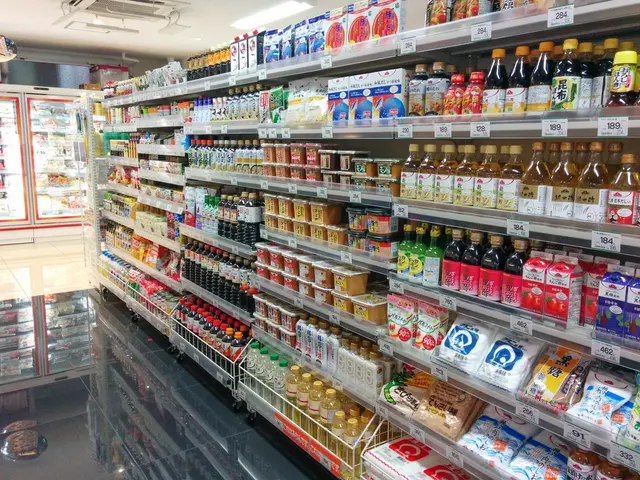Convenience Store Revolution: The Rise of Round-the-Clock Rural Markets
Contemplate the Village Mini-Markets: Critical Information You Should Be Aware Of - Village Mini-Markets: Essential Shops You Should Be Aware Of
Grabbing groceries in a pinch? A breeze in the city, but a hassle in the countryside. Step forward, the 24/7 mini-supermarkets. These baby stores are our lifesavers, offering groceries without the long drive to the next town.
Let's dive into this game-changing retail concept.
How's the store', doc?
These mini-marts are unmanned, operating autonomously. Don't freak out—there are weekly staff drop-ins to restock goods and assist customers. The rest of the time, the responsibility is on us punters to scan and pay for our items.
Where can I find these magic stores?
Tante M, a known provider, has approximately 60 mini-stores spread across the Southwest, with a majority found in Baden-Württemberg. In the north, Tegut's Teo-mini-markets are the go-to option. But remember, these predominantly rural stores are cropping up all around Germany.
When's the best time for grocery shopping according to the clock?
Tante M's stores generally operate from 5:00 AM to 11:00 PM, seven days a week, covering the essential needs of customers as per Tante M's business manager, Carsten Pletz. Night-time store closures are standard for ensuring safety, and around-the-clock shops aren't always required. However, Teo-markets operate non-stop.
Is there a catch? Legal jargon and all that jazz...
"Retail opening laws prohibit stores from operating on Sundays," explains trade expert Stephan Rüschen, professor of food retail at the Baden-Württemberg Dual University in Heilbronn. "However, these stores are technically operating within a legal gray area, as municipalities still grant permits. Some states, like Hesse, have officially legalized these mini-supermarkets."
Tell me about the retail scene, man...
Green Party folks in state parliaments think these stores are a Godsend, ensuring villagers can purchase necessities without extended car journeys. They argue this would boost the charm of rural areas, where essential stores, such as bakeries and butchers, have vanished over time. "Having a store in the village significantly improves the quality of life in the villages," says Andreas Schwarz, parliamentary faction leader of the Greens in the state parliament.
How much does convenience cost?
No straight facts here. Tante M doesn't dictate pricing guidelines for its franchises, and retail expert Rüschen from the Dual University in Heilbronn estimates a roughly 10% price hike compared to traditional supermarkets. But don't worry, surveys show almost 90% of customers find these prices acceptable.
What about shoplifting?
"Let's be honest, theft is an issue," admits Carsten Pletz of Tante M. "However, the close-knit community in these rural stores deters theft. People in a Tante M store want it to stay." The stores typically feature surveillance systems and access control for customers.
The Bigger Picture
There are no official national statistics specifying the number of 24/7 retail mini-supermarkets in rural Germany. However, companies like Tante Enso, a 24/7 local and online supermarket chain with branches across the country, are spearheading the innovative approach to rural shopping. The specific distribution of these stores remains unclear, as regional breakdowns are not public.
- Retail
- Milk
- Car
- Baden-Württemberg
- Supermarket
- Heilbronn
- Stuttgart
- Rural Shopping
- Greens
- Legislation
- Theft
- Price Impact
- The rise of round-the-clock rural markets, such as the 24/7 mini-supermarkets, is revolutionizing the retail industry, offering milk and other grocery essentials without the need for long drives.
- The mini-marts, operating autonomously most of the time, can be found across different regions, notably in Baden-Württemberg and the northern states, thanks to providers like Tante M and Tegut.
- These stores typically adhere to retail opening laws that prohibit operations on Sundays, operating from early morning to late night, such as Tante M (5:00 AM to 11:00 PM, seven days a week) and Teo-markets (which operate non-stop).
- The convenience of rural shopping comes at a price, with estimates suggesting a 10% increase compared to traditional supermarkets, though nearly 90% of customers find these prices acceptable.








